Marines Vietnam War Dolton, IL Flight date: 10/19/22
By Al Rodriguez, Honor Flight Chicago Veteran Interview Volunteer
The advice that everybody receives before entering any branch of military service is to NOT volunteer for anything. If he heard that advice, Steven Wolff ignored it by first voluntarily joining the Marines, not waiting to be drafted and then by volunteering for combat duty.
Steven was one of five siblings born in Chicago, Illinois but raised in Dolton. His mom and dad met in Washington D.C. during World War II; his mom was in the Navy and his dad a Marine. They married before his dad was deployed to the Pacific. After the war, his parents moved to Chicago. Service in the Marines became a tradition for Steven’s family. First his father, Steven, his brother (who also served in Vietnam) and his grandson.
Steven graduated from Thornridge High School in 1964. He went to work with his father who was a carpenter with a local construction company. In August of 1965, he and his friend Cliff decided to join the Marine Corps and were sent to San Diego for Basic Training. Steven said he loved the toughness of the training even though it was tougher than he had been told. After Basic Training, both he and Cliff’s MOS as rifleman sent them to Camp Pendleton California for infantry training. They trained with small arm weapons, M-14, machine guns, flame throwers, mortars, etc. in mock combat firefights.
After infantry training ended, Steven and Cliff were sent to Sea School in San Diego. They learned nautical terms and customs used on naval ships. They also learned the handling and firing of a 5 inch 38 caliber deck gun.
Completing their training, Steven and Cliff were assigned to the USS Saratoga (CVA-60) that was stationed at Naval Station Mayport in Florida. Steven’s first assignment was security for the nuclear weapons stored on the ship. He was surprised to protect new weaponry with WWI weaponry, an M1 and Colt 45. Also while the ship was in port, he was required to wear his dress uniform instead of utilities. While assigned to the USS Saratoga, he had two deployments to the Mediterranean Sea. As Steven was promoted, he was assigned as the 2nd Executive Officer’s Orderly. His duties included ensuring the officer’s safety on and off the ship. He was later promoted as the Captain’s orderly. As decreed by the state department, when the ship was in port, another Marine duty included escorting dignitaries safely to and from their destinations in Europe. Being in uniform during these escorts, he encountered a lot of European anti-American military protestors.
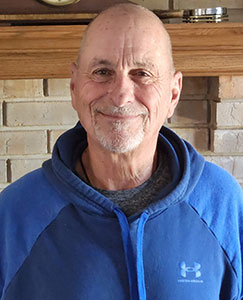
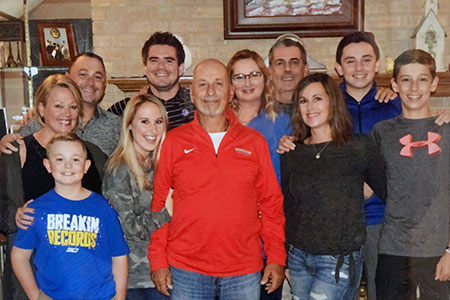
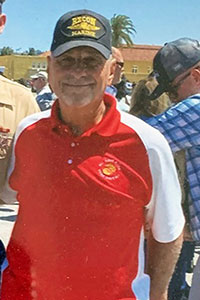
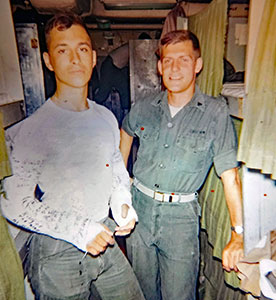
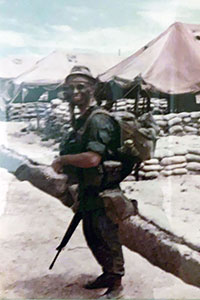
Training continued even on deployment. At the British Commando Course in Malta, Steven fell and broke arms, elbows and wrists. He also had a broken neck but it wasn’t discovered until later. The ship hospital cast him up and wanted to send him to a European hospital for treatment. He lobbied to be allowed to convalesce on ship because he worried if he was sent to a land based hospital, he would be evaluated medically unfit and discharged. He was in the casts for 16 weeks, but continued his tour.
After his sea duty, Steven was sent to Camp Lejeune North Carolina. He wasn’t happy with this assignment and the anti-war protests in the U.S. In 1968, the Marines were looking for volunteers to go to Da Nang Vietnam with the 3rd Force. He volunteered but because of his two years of overseas duty, he thought he would be denied. He was surprised when he was accepted.
Steven arrived in Da Nang and quickly volunteered for duty with the 3rd Recon Battalion. He was accepted and sent to Quang Tri, a few miles south of the DMZ. The 3rd Recon B Company was in a rustic setting without amenities found on other bases. They had WWII tents and equipment until they made better quarters for themselves with the help of the Seabees. The 3rd Recon duties were information and intelligence gathering on the NVA and Viet Cong: units, locations, equipment and how well they were organized. Four to six men were sent out on these clandestine missions sometimes into North Vietnam and Laos. The team was dropped off and picked up by skiff or helicopters. Steven said they were off on their own until they were picked up. It sounds crazy but he liked the freedom of being able to call his own shots while out on patrol. He was promoted to Team Leader and then Platoon Sergeant in charge of 3 teams. After a mission, they would come back to Quang Tri to clean their equipment and maybe have a warm beer. They would receive another mission within 2 or 3 days.
On July 15,1969 during one of these missions, he received the Bronze Star with Valor. While patrolling, they heard movement and found the enemy walking through the jungle. Even though outnumbered, Sergeant Wolff positioned his men and attacked the enemy. Disregarding his safety, he moved between positions encouraging and firing with his men. They inflicted heavy casualties to the enemy without his team sustaining a single wound. Steven said in his 13 months in Vietnam, they were fortunate because they never had a man killed in action, just wounded.
Steven finished his tour in Vietnam in August of 1969, ending his 4 year Marine Corp duty. He was sent to Treasure Island in San Francisco for discharge. He was eligible for disability because of his injuries while on active duty. But after sitting in a corridor with terribly injured Marines, when he was asked if he wanted to apply for disability, he signed a waiver releasing the government of any medical responsibilities. Despite his injuries, Steven hasn’t had any ill effects from his four years in the Marines. He said he had a small skin cancer cell but doesn’t fault it on his service time.
Steven returned to Chicago and began working in construction again. In January of 1970, he took the ironworkers apprenticeship test and passed it. He started working as an apprentice. Not happy with the anti-war protests in the U.S. he thought about returning to the Marine Corps or working as a military contractor but neither happened. As an ironworker, Steven was contracted out for many building and bridge projects. He worked his way up from worker to manager with local contractor companies. At a wedding shower for a fellow Marine, he bumped into his future wife Nancy who he had known from grade school but had never dated. They began dating and 3 weeks later Steven asked her to marry him and she said “yes.” They married in June of 1970 and moved to South Holland. They had two children, Melissa born in 1971 and Travis born in 1976. In the 1980’s, he moved to Crete, Illinois. He and his family have traveled throughout the U.S. They also had a house in Wisconsin where they vacationed in the summer months. Steven’s wife, Nancy, died of breast cancer November 10, 2001.
Steven’s current passion is bow hunting. He is a traditional longbow hunter and has traveled throughout the U.S. harvesting game. He is also an avid golfer. He helped to set up the Vietnam Memorial section of the Lansing Airport Veterans Memorial. His cousin introduced him to a widow coincidentally named Nancy. They started dating and married in 2008. Nancy has a daughter, so his family has grown to three children, including 4 grandsons. Steven said his wife is responsible for obtaining the Honor Flight application and making him send it in. Thank you Nancy!
Steven’s looking forward to seeing the World War II memorial that he said should have been built 50 years sooner.
Steven, thank you for your patriotism and courage…welcome home! Enjoy your well-deserved day of honor on Honor Flight Chicago’s 106th flight.


